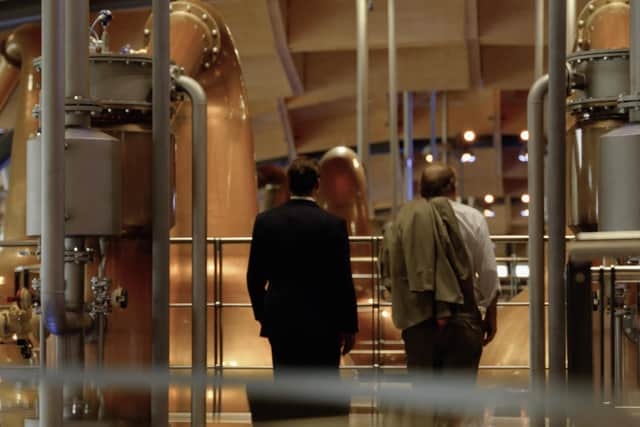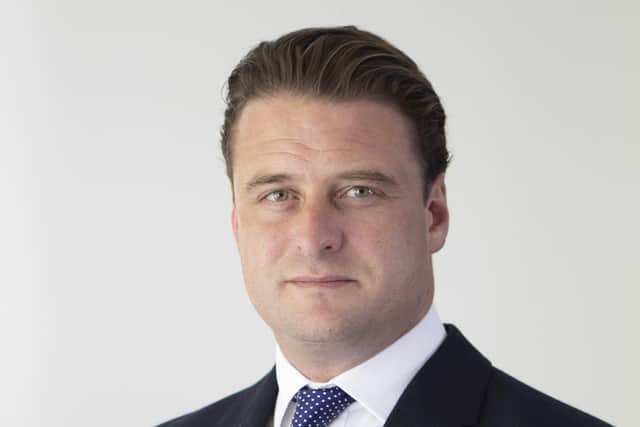Bringing the 'private client’ experience to the rare whisky industry - Charles Beamish comment
and live on Freeview channel 276
Many of these buyers desire liquids at the absolute pinnacle of the market, classed in the industry as “ultra-rare”, and are willing to meet the price points to acquire them. Distillers and whisky specialists cater to this level of clientele but until recently there was no entity to work specifically on projects for these buyers in order to access the hardest-to-find liquid.
Now, however, there is a growing realisation that the "private client” approach is necessary to meet the demand at this level, and this is where businesses like mine – Beamish International – come in.
Advertisement
Hide AdAdvertisement
Hide AdBottles at the ultra-rare level start at around £10,000, and casks range from £100,000 to more than £5 million, so discerning buyers understandably want to ensure they are acquiring products that are verifiably special. The discerning tastes and demands of a collector must be met on a “project-by-project” basis, where solutions at every step of the way are customised.
All parts of the process can be tailored to client specification, beginning with understanding their needs, then educating them to enable the making of informed decisions, before introducing the client to the distilleries and managing customised bottling and shipping.
Directly accessing Scotland’s leading distilleries to find rare and original casks and bottlings is possible through a “private clients” channel, which some distilleries offer in-house, while businesses like Beamish International offer a private office advisory service to allow access to rare liquids across the wider distillery landscape. Until now, this latter approach has only seriously been explored in other lifestyle collecting categories, such as in art and wine collecting.
The first step in private client relationships at this level is to understand the buyer’s collecting intentions. That informs the process up until the completion of any project, as the private office is then best positioned to recommend the ideal whisky to acquire.


Advertisement
Hide AdAdvertisement
Hide AdEntities like Beamish International can then manage assets on behalf of the clients. The producers benefit from whisky private offices building in an asset-management and service function for their brand. Private offices can then build strong relationships with their clientele and invite new customers to experience the “private clients” service.
Treasures
Traditionally, intimate knowledge of the rare whisky landscape has been required to find the highest-quality liquids and sort the excellent examples from other offerings. Working closely and building and maintaining relationships with leading distilleries in Scotland is part of the service for private offices like Beamish International – distilleries can provide access to unseen, extremely rare treasures – which would otherwise be extremely difficult to attain – directly to private clients.
Moreover, distilleries are finding that by guiding a client as they discover their stocks builds trust and repeat custom. Collectors buying at the rare whisky level often want a liquid that no one else possesses – highly secretive single-cask acquisitions and completely unique offerings. Access to these liquids requires deep roots and strong trust with the distilleries.


Education is an important part of the private client offer. The language and processes of the industry are a hurdle for many new collectors, particularly those from South Asia, who may be entering a new collecting space in a foreign language and digesting challenging industry lexicon and regulations.
Advertisement
Hide AdAdvertisement
Hide AdPreviously found in art and wine advisories, a rare whisky private office can educate clients on how to understand, taste and enjoy the ultra-rare offerings from these distilleries’ archives. It takes time, but we find that the outcome is always worth the effort.
Independent whisky private offices offer an impartial voice of quality assurance in the industry, which can be a real asset when advising the client on the right collecting decisions. The taste of a whisky varies greatly from region to region, distillery to distillery, warehouse to warehouse, cask to cask, depending on countless variables, and being tutored through these differences from an unbiased source is part of the offer.
Beamish International works with Charlie Maclean MBE, universally accepted in the industry as one of the foremost authorities on rare whisky, who verifies quality with a ten-metric scoring system. Many distilleries, if approached directly, may sell liquids to clients that might not meet their needs or have been independently quality tested.
Pitfalls
The private office model of working directly with distilleries also avoids the pitfalls of the uncomfortable reality that there are many whiskies in secondary circulation that are not the real deal. According to the Scottish Universities Environment Research Centre of the University of Glasgow, around 40 per cent of whiskies sold on the secondary market are fake or inaccurately labelled.
Advertisement
Hide AdAdvertisement
Hide AdYounger liquids being marketed as much older, or genuinely historic bottles containing a much younger liquid, are problems that plague the industry, sometimes catching out unsuspecting buyers. Going straight to the distilleries removes this risk and is encouraged by us and the distilleries themselves.
Much more than a passion asset, rare whisky is something to be enjoyed directly or gifted, and the industry is responding to the demand by offering access to its most treasured archives via the private clients experience. The trend of private client interest and enjoyment of rare whisky is not slowing down, so we raise a dram to rare whisky’s future – and toast the health of this industry that continues to grow.
Charles Beamish, chief executive and founder of Edinburgh-based rare whisky advisory firm Beamish International
Comment Guidelines
National World encourages reader discussion on our stories. User feedback, insights and back-and-forth exchanges add a rich layer of context to reporting. Please review our Community Guidelines before commenting.